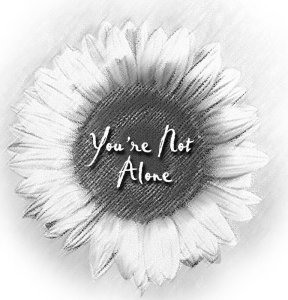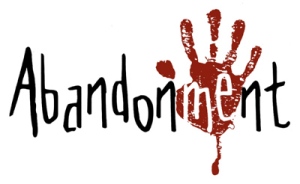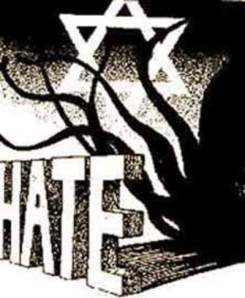By: Christian and Sydney
Archive for the ‘Christian’s Posts’ Category
Favourite Character in The Book Thief
Posted in Christian's Posts, Polls, Sydney's Posts on January 22, 2011| Leave a Comment »
The Cycle of Disappointment and Amazement
Posted in Christian's Posts on January 19, 2011| Leave a Comment »
The ending of The Book Thief, for the most part, is satisfying enough. The Book Thief being a cynical book meant that the downer ending was going to happen. The story doesn’t really end that happily, with only the two major characters, Liesel and Max, surviving the course of the book. What is probably the most infuriating part of the ending is the fact that nothing ever happens between Liesel and Rudy. It’s was obvious that the two liked each other and, at one point, the author sets up a scenario where the two seem like they are going to kiss, but it never happens. It’s really sad and ironic that the two of them do end up kissing, but after Rudy dies. One of the comments made by Death during the end of the book was, “I wanted to explain that I am constantly overestimating and underestimating the human race- rarely do I ever simply estimate it.” (Zusak, 550). The quote relates to a theme in the book which is, humans are unpredictable; they can both amaze and disappoint. Adding that comment really summed up what The Book Thief was all about. The mostly cynical ending of The Book thief is in contrast with the more idealistic ending of Slumdog Millionaire. In Slumdog Millionaire, Thomas, the main character, ends up with the money he won and with it he provides happy endings to most of the other important characters. The Book Thief’s ending may come of as cheap way to not finish all the different character arcs, but what the author did do, was finish Liesel’s arc. It was a sad ending, but one that shows that life is short and people must take each day like it’s their last.

Life and Death
Remember You’re Not Alone
Posted in Christian's Posts on January 18, 2011| Leave a Comment »
The Book Thief is very much a cynical book. Problems are brought into the plot and they aren’t all resolved. Liesel’s fears of abandonment are actually worsened near the end of the book, as most of the people she has learned to love throughout her life die during a bombing. Liesel’s essentially left all alone. The only ray of hope is that Max survived through the Holocaust. It seems cruel to have Liesel lose almost everyone, but at least Max, the person she came to see as a brother, lived. Although subtle, the impact of Max’s survival is shown when Liesel and Max meet after the war is over. “Liesel came out. They hugged and cried and fell to the floor.” (Zusak, 549). It’s not the most idealistic resolution, but now Liesel can realise that everyone hasn’t abandoned her yet. Instead of spending her life alone, she can spend it with Max. This type of resolution is exactly what happens in The Book of Negroes. In The Book of Negroes, Aminata seemingly loses her whole family. It’s not until the very end of the book that Aminata is reunited with her long lost daughter, May. This reunion allows Aminata to realise that her job is finally complete and that she can leave the world without any regrets. Yeah, both Liesel and Aminata lose most of their loved ones, but they each get to reunite with one person they had lost and though they would never see again. It is also safe to assume that Max’s feelings of helplessness have finally left him, as his mere existence no longer endangers him or his loved ones.
PMI Chart
Posted in Christian's Posts on January 14, 2011| 3 Comments »
Pluses
– All the characters are believable. They react and change in the way one would think they would.
– The writing is well done. The author uses poetic, witty and heart-wrenching language to draw the reader in.
– The message being conveyed by the book is very strong and one that should be learned by everyone.
– The story has ties with an event that actually happened; World War II.
Minuses
– The book may be a little too long for some.
– Some characters contributed almost nothing to the overall plot.
– The ending may come off as cheap to the reader.
– Liesel’s and Rudy’s relationship may be frustrating, due to the fact it culminates to nothing.
– Death spoils things for the reader.
Interesting
– Death is the narrator and provides little comments throughout the book.
– A language bonus for those who know German, as some Germans words are used in the book.
– There are sections in the book that have pictures drawn by Max in them.
Escaping Into Books and Protecting Those You Love
Posted in Christian's Posts on January 14, 2011| 2 Comments »
The two most important characters in The Book Thief are Liesel and Max. Throughout the novel, both of Max and Liesel encounter various problems which they try to cope with. In Liesel’s case, most of her problems stem from her fear of abandonment. Liesel was “abandoned” by her mother when she was young and that caused her to fear being all alone. That’s why when both Max and Hans, two people that have had an impact in her life, leave, Liesel gets scared that she will never see them again. Liesel copes with these problems by reading. Books help Liesel escape her worries/fears and, to her, reading gives her power, something she feels she doesn’t have. In Max’s case, he has to deal with the fact that people want him dead for being a Jew and that he is endangering Liesel’s family by staying with them. Max tries to cope with his problems and eventually takes matters into his own hands. Max leaves Liesel’s family, essentially protecting them, only leaving a note saying, “ you’ve done enough” (Zusak, 398). This course of action is in complete contrast with what happens in Monkey Beach. In Monkey Beach, the main character, Lisa loses two people that were very important to her. While Max decides that he will fix his problems by not endangering people anymore, Lisa runs away from the pain of losing her loved ones, essentially leaving her life behind. It’s hard to say if the characters are coping well or not with their problems. It seems more like they’re dealing with their problems the only way they can.
Those Who Hate and Those Who Protect
Posted in Christian's Posts on January 14, 2011| Leave a Comment »
In The Book Thief, all the characters are, in one way or another; witnesses to the Antisemitism that has taken a hold of Germany. On one side there’s those who are in agreement with Hitler and believe that the Jews should be exterminated. On the other side there are those who are mortified by this horrific injustice. Although the main conflict in the book involves the moral issues with Antisemitism, none of the main characters actually take part in it. Only the side characters are ever shown to be Nazis. For example, Hans’ son, Hans Junior is a wholehearted Nazi and is disgusted by his father’s dislike of them. This vast difference in opinion, concerning injustice, between parent and child is also found in A Thousand Splendid Suns. In that book, the main character, Mariam, disagrees with her father. Mariam’s father is embarrassed of being seen with Mariam because her mother was his employee, while Mariam believes that no matter who her mom is, they can have a normal father-and-daughter relationship. Hans is a kind person and he can’t stand and watch what is happening in Nazi Germany. Hans even goes as far as to help, not one but two, Jews, even though he knows of the consequences. After helping out the second Jewish man, Hans realizes what he’s done, and says, “I am stupid…And kind. Which makes me the biggest idiot in the world. The thing is I want them to come for me. Anything’s better than this waiting.” (Zusak, 402). The quote shows how Hans’ kindness has become a double-edged sword. Hans knows that to protect his family, he has to conform to the Nazis, but his character won’t allow him to just sit and watch the cruel treatment of the Jews. Hans and his family, Rosa and Liesel, helped show the readers that not all humans in Nazi Germany were murderers.
The Hatred Towards the Jews
Posted in Christian's Posts on January 13, 2011| 2 Comments »
If someone were to read The Book Thief, they would find that the book focuses on an injustice that plagues a very controversial part of our world history; World War II. That injustice is Antisemitism; the mistreatment of Jewish people. The Book Thief provides the reader with the point of view of a citizen from Nazi Germany. The citizen’s name is Liesel. Throughout the story, Liesel sees what the germans do to the Jewish; they vandalize their stores, abuse them and essentially treat them like trash. The sad part about the mistreatment is that some people don’t want to take part in it. The citizens of Germany must conform to what the Fuhrer, Adolf Hitler, wants or they’ll be treated just like the Jews. At that time, Germany was controlled by pure fear. Although Liesel lives in Germany, she does not agree with the Nazis and neither do her foster parents, Hans and Rosa. The family even goes as far as keeping a Jewish man, named Max, in their house, even though they would have had to forfeit their lives if Max was discovered. This selflessness is in complete contrast with what happens in The Kite Runner, another book focusing on injustice. In The Kite Runner, the main character Amir starts to, subsconciously, discriminate agaisnt his best friend Hassan, because he’s a Hazara, a race in Afghanistan that is collectively hated by the rest of the country. At one point, The Book Thief describes how many Germans were Nazis during that time period, saying”…90 percent of Germans showed unflinching support for Adolf Hitler. That leaves 10 percent who didn’t.” (Zusak, 63). The quote clearly shows how much power Hitler had at that time. If someone tried to do the same thing as Hitler today, how many people would follow?




